DELTA COURSE IN RUSSIA
Diploma in Teaching English to Speakers of Other Languages Develop your career with the highest qualification for English language teachers: Module Two.
Даты
проведения:
По запросу
Место проведения: Ростов-на-Дону
Требования
и формат:
Возраст: от 18 лет
Уровень: С1 (Advanced) или С2 (Proficiency)
Стоимость
курса:
Module 1:
По запросу
Module 2:
По запросу
Module 3:
– 18 000 руб.

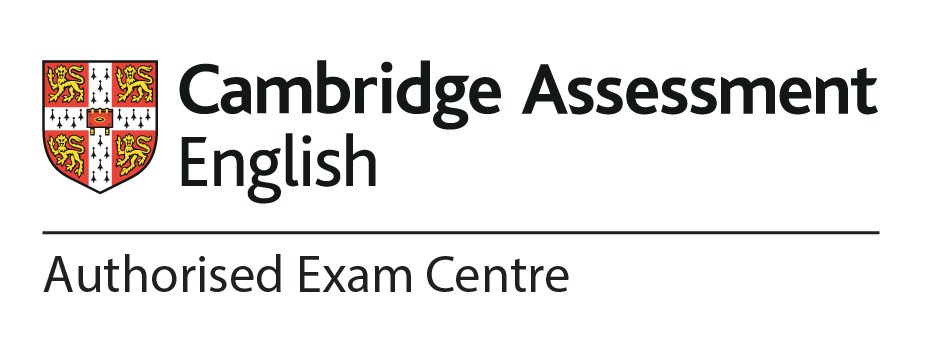
Delta – Диплом Кембриджского Университета, подтверждает высочайшую квалификацию преподавателя как по методике преподавания английского языка, так и по организации учебного процесса. Преподаватель английского языка с Delta может работать во всем мире в языковых школах и имеет возможность претендовать на должность Академического директора или Director of Studies (DOS). Также при наличии Delta есть возможность стать CELTA тьютором для получения высокооплачиваемой работы в языковых школах как в России, так и за рубежом. Диплом Кембриджского Университета Delta признается во всем мире.
Курс состоит из 3 модулей, каждый из которых оценивается отдельно с выдачей отдельного диплома.
Модуль 1.
Понимание языка, методологии и ресурсов для преподавания – является письменным экзаменом и оценивает базовые принципы преподавания и обучения.
Модуль 2.
Развитие профессиональной практики – 6-недельный курс, включающий в себя 100 академических часов работы с тьютором и 100 академических часов независимого обучения по планированию работ, их написанию, а так же планированию занятий.
Второй модуль включает такие области:
– изучающие английский язык и контексты изучения английского языка;
– подготовка к обучению английскому языку;
– оценка, отбор и использование образовательных ресурсов и материалов в преподавательских целях;
– управление и поддержка на уроке;
– оценивание подготовки к урокам и преподавания;
– наблюдение за другими преподавателями и их оценка;
– профессионализм и возможности для профессионального развития.
Модуль 3.
Дипломная работа.

Онлайн курс подготовки
к DELTA module 1:
Стоимость: 35 000 руб. до 30.04.23
Старт онлайн курса: с 29 июля 2023
Этот онлайн-курс специально разработан для преподавателей которые хотят максимально подготовится перед экзаменом Delta Module 1. Данный курс даст знания не только теории, необходимой для успешной сдачи экзамена, но и структуры заданий и стратегии их эффективного выполнения. Он включает в себя онлайн-теорию, консультации по Skype, онлайн-практику и тестовый экзамен (с последующим подробным анализом от тьюторов).

Онлайн курс подготовки
к DELTA module 3:
Стоимость: 35 000 руб. до 30.04.23
Старт онлайн курса: c 5 августа 2023
Teacher traning centre открывает регистрацию на подготовительный курс для сдачи Cambridge Delta Module 3.
В ходе курса вы узнаете ответы на вопросы:
- Как написать качественное исследование выбранной специализации, как выбрать специализацию и анализировать ее.
- Как определить потребности учащихся в определенном контексте выбранной специализации и какие виды тестирования используются в этих контекстах.
- Как разработать учебный план для определенных контекстов обучения, как сформулировать цели курса и как выбрать подходящие подходы, методы и техники обучения.
- Как проводить тестирование и оценивание студентов и мониторинг и оценку курсов и программ обучения.
Участникам курса будут предоставлены все необходимые материалы для успешного написания текста работы. За время курса каждая из частей работы будет проверена дважды тьюторами курса.
Общее количество часов: 25 академических часов (1 акч=45 минут), включая 16 акч вебинаров и 9 часов индивидуальных сессий с тьюторами курса.
Вебинары проходят по субботам в 12:00 московского времени. Время проведения сессий с тьюторами оговаривается в индивидуальном порядке.
Дополнительные онлайн услуги
к модулям DELTA

Вычитка работы по третьему модулю DELTA
Дополнительная вычитка тьютором всей работы 3 модуля –
5 000 рублей (для тех, кто прошел курс подготовки к 3 модулю в нашем центре).
Вычитка всей работы 3 модуля – 15 000₽

Индивидуальная консультация с тьютором по модулю 1 или 3
При подготовке к экзамену по модулю 1 и написании работы модуля 3 часто возникают вопросы, на которые точно сможет ответить опытный тьютор курса.
Длительность консультации: 45 минут
Формат: онлайн
Стоимость: 2 000₽ (при оплате курса подготовки)
Стоимость: 2 500₽ (без оплаты курса подготовки)

Mock тест
по модулю 1
Мы организуем Mock тест по первому модулю по запросу. Доступны индивидуальные и групповые форматы, онлайн и оффлайн.
После пробного теста вы получите подробные комментарии тьюторов по заданиям.
Продолжительность: 3 часа (180 минут)
+15-минутный перерыв между частями
Стоимость: 4 500₽ (при оплате курса подготовки)
Стоимость: 5 000₽ (без оплаты курса подготовки)
Причины выбора Delta
Поднимите свою карьеру на новый уровень, показав, что у вас есть все, чтобы добиться прогресса в вашей нынешней позиции или перейти на более высокую должность. Курс DELTA поможет расширить знания и понимание принципов преподавания английского языка; переосмыслить свое профессиональное поведение; приобрести неоценимый опыт; узнать, как преподавать английский язык студентам самых разных возрастов; проявить себя как специалиста, словом, подготовить себя к более серьезным задачам в своей области.


В чем разница между CELTA и DELTA?
Между этими учебными программами существуют принципиальные отличия и их немало. Если вашей целью является преподавание в английской школе на высоком уровне, вам вполне достаточно будет получить CELTA. Если же вы хотите развиваться дальше и стать академическим директором, методистом или же, например, работать тьютором Кембриджского университета, то для этих целей вам понадобится DELTA. DELTA — это курс, на который принимают уже «experienced teachers» с минимальным опытом работы в 2 года или не менее 1200 часов проведенных занятий за последние пять лет.
Оставить заявку на консультацию по курсу DELTA

DELTA TUTORS:

Robert Fletcher
Qualifications:
Teacher trainer since 1997. IHCTL (International House Certificate in Teaching Languages) since 1997, CELTA since 2003 and Delta since 2005. Has trained teachers of English, French, Spanish, German and Chinese.
Most recent courses (2019) include Deltas in both Krasnodar, Russia and Kyiv, Ukraine and CELTAS in Medellin, Columbia and Nottingham, UK.
Helped to set up and run the first ever Delta courses in Kyiv, Ukraine and Perth, Australia also the first ever CELTA course in Vilnius, Lithuania.
Has trained both native and non-native English teachers at introductory and Masters level.
Experienced trainer of teacher trainers at both CELTA and Delta level.
Worked as a Senior Teacher in Ih Cadiz, Spain; Academic Director of International House Minsk, Belarus for eight years and as the Head of Teacher Training in International House Newcastle, UK for thirteen years.
Trained Cultural Awareness / Cross Cultural consultant.
Author of online teacher training materials and collaborated in the writing of new Children’s text books for schools in Belarus
Experienced in delivering teaching methodology and CLIL courses for non native teachers of English.
Widely experienced in teaching children and adults of all levels and nationalities from beginner to Cambridge Proficiency
Schools inspector for the International House World Organisation.
Has presented at conferences on various topics.
Robert Fletcher is an experienced teacher and trainer, currently based in Newcastle in the North East of England. He has taught and trained teachers all over the world. His current professional interest is the reduction of stress on teacher training courses. His hobbies are learning languages (he speaks five), international cooking and helping to look after his grandchildren.
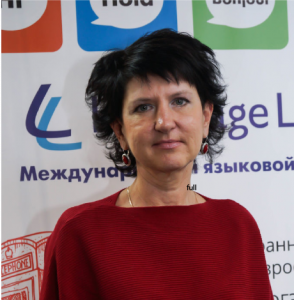
Yuliana Chernikova
Qualifications:
Scientific degree in English Philology, Teacher of English since 1990, Teacher trainer and Director of Studies (EF English First, Language Link) since 2003, CELTA tutor since 2011 and Delta tutor since 2012. Young Learners Tutor (CELTA YL Extension, CELT-P, CELT-S)
Recent Delta course (2019) in Language Link Krasnodar.
Ran CELTA in Vietnam, China, Thailand, Bangladesh (British Council), Bahrain, India, Moscow, Krasnodar, Taganrog, Stavropol, Rostov-on-Don
Experienced trainer of teacher trainers. Has trained up both native and non-native English teachers as CELTA tutors.
Experienced in delivering teaching methodology seminars and courses for non native teachers of English.
Widely experienced in teaching children and adults of all levels from beginner to Cambridge Proficiency
Has presented at conferences on various topics.
Yuliana Chernikova is an experienced teacher and trainer, based in Rostov-on-Don, Russia. She has taught and trained teachers of different nationalities. Her current professional interest is in teaching heterogeneous groups. Her hobbies are learning languages, international cooking and dancing.
Отзывы наших тьютеров и асессоров:
Отзывы студентов:

Take your teaching career to the next level
DELTA is an advanced blend of theory and practice that provides professional development for teachers with at least one year’s experience. It gives you skills and techniques that will help you throughout your career.
If you are ready to take your DELTA module, the next step is to find a centre near you.
Find a teaching centre
Who is DELTA for?
- English language teachers who have been teaching for at least one year
- English language teachers who want to progress into more senior roles such as head of English and teacher training
- Experienced teachers who want to extend their expertise in a specialist area
- First-language English speakers and non-first language speakers who have a CEFR Level of high C1 or above.
DELTA is suitable for teaching any age group, from young learners to adults.
Key features of DELTA
- DELTA is taken over three modules – you can take as many modules as you like, in any order.
- Deepens your knowledge and understanding of English language teaching.
- Internationally recognised, highly respected and a benchmark for quality.
- Enables you to develop your career and prepare for more senior teaching roles.
Learn more about DELTA
Ways to take DELTA
DELTA can be taken as a face-to-face, online, blended or distance course.
Ways to take DELTA
I think that DELTA has been the most inspiring teaching qualification that I’ve taken, and it’s been the one that has opened more doors.
Looking for a different kind of teaching qualification?
We have a whole range of industry-leading qualifications to help you develop your English teaching skills. There are qualifications and courses for new and experienced teachers alike, covering a range of skills.
Qualifications for teachers
Professional development for teachers
Cambridge English offers a range of professional development options for teachers, regardless of their level of experience or training. Our free resources help you manage you own professional development and improve your everyday teaching.
Professional development for teachers
DELTA is at Proficient to Expert stages on the Cambridge English Teaching Framework.
-
Главная
-
Услуги
-
Кембриджские экзамены
- DELTA
DELTA (Diploma in Teaching English to Speakers of Other Languages)
Delta — Диплом Кембриджского Университета, подтверждает высочайшую квалификацию преподавателя как по методике преподавания английского языка, так и по организации учебного процесса. Преподаватель английского языка с Delta может работать во всем мире в языковых школах и имеет возможность претендовать на должность Академического директора или Director of Studies (DOS). Также при наличии Delta есть возможность стать CELTA тьютором для получения высокооплачиваемой работы в языковых школах как в России, так и за рубежом. Диплом Кембриджского Университета Delta признается во всем мире.
Курс состоит из 3 модулей, каждый из которых оценивается отдельно с выдачей отдельного диплома.
Модуль 1. Понимание языка, методологии и ресурсов для преподавания – оценивается письменным экзаменом и освещает базовые принципы преподавания и обучения.
Модуль 2. Развитие профессиональной практики и усовершенствование профессиональных приемов. Оценивается с помощью портфолио работ в течение курса
Модуль 3. Расширение практики и специализация ELT.
Подробнее
Офлайн и онлайн-курс подготовки к DELTA от Language Link Ростов-на-Дону
Language Link Ростов-на-Дону организует курсы подготовки к DELTA:
- Офлайн-курс подготовки к DELTA Module 2.
- Онлайн-курсы подготовки к DELTA Module 1, DELTA Module 3.
- Этот онлайн-курс специально разработан для преподавателей, которые хотят максимально подготовиться перед экзаменом Delta.
- Данный курс даст знания не только теории, необходимой для успешной сдачи экзамена, но и структуры заданий и стратегии их эффективного выполнения.
- Он включает в себя онлайн-теорию, консультации по Skype, онлайн-практику и тестовый экзамен (с последующим подробным анализом от тьюторов).
После окончания курса Вы получите возможность сдать DELTA в авторизованном экзаменационном центре Language Link RU053/RU054 (сдача экзамена оплачивается отдельно).
По вопросам подготовки и сдачи DELTA вы можете обращаться в Language Link Ростов-на-Дону по почте sales.rostov@languagelink.ru и по телефону +7(863) 285-63-85.
Офлайн и онлайн-курс подготовки к DELTA от зарубежного партнера Language Link
Английская школа BELL является партнером Language Link и предлагает онлайн-курс подготовки к DELTA, офлайн-курс в Англии, а также курс, сочетающий онлайн и очную формы обучения.
- Blended course DELTA Module 2.
- Face-to-face course DELTA Module 1, 2 (Bell Teacher Academy, Cambridge).
По вопросам подготовки и сдачи DELTA вы можете обращаться в Language Link Обучение за рубежом по почте study@languagelink.ru и по телефону +7 (495) 105-99-31.
Онлайн заявка на курсы
Мы перезвоним вам и подберем удобное для вас время.
Акции и предложения
Пройдите онлайн-курс и получите сертификат
Онлайн-курс для преподавателей английского TEFL2go
80 hours (7 modules, each containing 3 to 5 sessions)
6 Months 24/7 study access
Стоимость при оплате из РФ — 9.000 ₽
Думаете, Delta — это что-то страшное, мега дорогое, супертрудное и практически недостижимое? Возможно, моя история докажет, что это не совсем так, ведь я, в конце концов, простой преподаватель из провинции.
Предыстория
В 2010 году я работала преподавателем в сетевой языковой школе а Казани. В свои тогда 30 лет я была не особо довольна своей карьерой. За плечами была обменная программа Fulbright в США, а впереди — сплошная неопределенность. Преподавать мне нравилось, но я понимала, что родной университет в методическом плане не дал мне практически ничего, и весь мой опыт был получен методом проб и ошибок. Я узнавала про CELTA — в Казани ее тогда не предлагали, а ехать в Москву — это ж целое дело. Нужно как-то отпроситься с работы, найти в столице жилье, а уж по деньгам выходила просто неподъемная сумма.
И тут мне повезло. Я выиграла обменную программу от Британского Совета и в октябре 2010 приехала в Великобританию, в Манчестер, на целый академический год. Месяца два я привыкала, обживалась, закрывала финансовые дыры, знакомилась с людьми, культурой и бытом, в общем, справлялась с культурным шоком. Ближе к декабрю я начала вспоминать о своих стратегических целях и задумываться о возможном обучении. В конце концов, думала я, пока я здесь, в Манчестере, и получаю зарплату, хоть и небольшую, но в фунтах, получить CELTA должно быть все же легче, чем в России.
Тут мне повезло во второй раз. Я познакомилась и подружилась с моим вдохновителем Ольгой, которая мало того, что жила в Англии лет 5 на тот момент, так еще и была профессиональным преподавателем английского и русского как иностранного. Она меня категорически отговаривала от CELTA, о которой я тогда мечтала, и советовала сразу делать Delta.
«Зачем тебе, с твоим филологическим университетским образованием и 10-летним опытом преподавания проходить курс элементарной лингвистики вместе с английскими сантехниками и электриками, мечтающими путешествовать по миру, одновременно зарабатывая преподаванием на жизнь?», — убеждала меня Ольга. Сейчас, глядя назад, не могу сказать, что это вся правда о CELTA, но доля истины в ее словах однозначно есть.
Окончательно мои сомнения развеялись, когда я узнала, что на курс CELTA, который начинался в январе, набор закончен, а на следующий за ним не хватит длительности моей визы, так что с CELTA я пролетала. Delta начиналась в феврале и заканчивалась в начале июня — это был идеальный тайминг для меня. Я никак не думала, что на курс, который стоил тогда 1800 фунтов, будет еще и трудно попасть.
Как я поступала
Решившись, я наконец пришла в Manchester Academy of English лично, чтобы выяснить все детали. Узнав, каким курсом я интересуюсь, ко мне пригласили Director of Studies, звали ее Vanna Carter, и она быстро развеяла все мои мечты о Delta. Ох уж эта Vanna, суровая женщина. Узнав, кто я и откуда, и что CELTA у меня нет, она наотрез отказалась слушать мои доводы. К тому же выяснилось, что в Манчестере программа была организована таким образом, что я должна была где-то работать преподавателем EFL/ESL, чтобы тьюторы могли приходить ко мне на lesson observations по месту работы. Я же трудилась преподавателем русского как иностранного. В общем, вышла я оттуда с поникшей головой, и в отчаянии позвонила Ольге — думала, пожалеет меня, посочувствует.
Но не тут-то было. Спасибо тебе, Ольга, что ты тогда надавила на меня, велела настаивать на своем, требовать и добиваться своей цели. Через несколько дней я беседовала с Vanna уже более подготовленная. По поводу отсутствия CELTA, я сослалась на Cambridge Assessment English (cambridgeenglish.org), где в официальном Handbook указано в том числе:
Who is Delta suitable for?
Delta can be taken at any stage in a teacher’s career. It is suitable for:
- teachers with previous English language teaching experience.
- Candidates will normally have an initial English Language
Teaching (ELT) qualification, for example CELTA (Certificate in
Teaching English to Speakers of Other Languages), and have at least
a year’s ELT experience.
Ну чем мой российский диплом филолога, преподавателя английского языка — не Initial ELT Qualification?
По поводу работы преподавателем английского как иностранного в Манчестере — я сказала, что разослала резюме во все возможные и невозможные организации (я действительно разослала примерно в 50 школ) с просьбой взять меня на работу волонтером, и ждала ответа. В итоге я по-настоящему разозлила Vanna Carter, которая сказала мне Well, fine, anybody can apply. Ну уж нет, подумала я, я вам не anybody. Я заполнила и отправила заявку, где нужно было в том числе ответить на такие вопросы:
- Why do you think you are ready to do the Diploma course?
- Discuss the possible problems that students may have with the following language items:
a) They are always forgetting their homework.
b) It’s going to rain.
c) I’ve been washing the car.
d) If we’d come earlier, we’d have got better seats. - Provide a few examples of changes in your teaching practice since you started teaching.
- In approximately 300 words write an account of your most successful lesson, highlighting the aims of each stage and the reasons for its success.
Видимо, Vanna Carter обязана была читать все заявки, и видимо мои ответы не были лишены смысла, потому что через неделю я получила приглашение на собеседование с ней. Наконец-то она по-настоящему выслушала меня, а не просто пыталась отмахнуться от настырной девицы без CELTA. Итог — скептическое Let’s give it a go, но я была на седьмом небе от счастья.
Надо сказать, что написала я в заявке все честно, в том числе, что Delta мне нужна в первую очередь для того, чтобы быть хорошим преподавателем. Конечно, карьерные перспективы, статус и престиж этого диплома никто не отменял, но главным для меня было действительно научиться эффективно обучать языку.
Дополнительный доход и гибкий график, стабильная нагрузка без бюрократии и поиска учеников. Присоединяйтесь к дружной команде и преподавайте от 12 часов в неделю. Подробности по ссылке!
Как проходил курс
Курс Delta в Манчестере длился 4 месяца и охватывал только Module 1 и Module 2. Module 1 — это 3-часовой экзамен по основам лингвистики и методике преподавания. На занятиях, которые проходили два раза в неделю, мы в основном занимались подготовкой к этому экзамену.
Самое главное для успешной его сдачи — это владение соответствующей терминологией. Тут, друзья, мое классическое университетское филологическое образование очень мне помогло, поскольку в той части, которая касалась фонетики, морфологии и прочих аспектов языкознания без ложной скромности скажу, что я знала больше тьюторов (которых, кстати, было двое). Я была единственной иностранкой на курсе, и единственной, кто был знаком с символами фонетической транскрипции, понятиями fricative, genre, case, compound noun и прочими.
Однако в части методики мне пришлось тяжко, и если выучить названия и принципы различных подходов к обучению было еще довольно просто, то когда речь дошла до всех systems, skills and subskills и как им обучать — это для меня было в новинку, а уж тема assessment — я даже не задумывалась, сколько всего может скрываться в науке о создании тестов, о видах и критериях оценивания. Как бы там ни было, Module 1 был мной в итоге успешно сдан.
Module 2 — это четыре открытых урока, два на systems (vocabulary, grammar, pronunciation or discourse) и два на skills (listening, reading, speaking or writing). Последний урок — по сути, экзамен — оценивает external assessor — то есть не course tutor, который тебя уже знает как облупленного, а неизвестный тебе человек.
К каждому уроку нужно было написать Language Systems/Skills Assignment — это 2,000 — 2,500 слов в формате мини-курсовой, страниц на десять, и детальный план урока — еще десяток страниц. Для обоих опусов есть строгий формат, и тьюторы помогают понять, что именно нужно писать. Например, к уроку по Speaking я выбрала фокус на subskills of back-channelling, turn-taking and repair, и в LSA необходимо начать с введения, затем следует Analysis — что это за subskills и как с ними работать, с цитатами и ссылками на источники.
Затем следуют Issues — основные проблемы, возникающие у студентов с этими subskills, далее — Suggestions for teaching с примерами того, как можно помочь студентам усовершенствовать эти навыки, Bibliography and Appendix. Lesson plan включает в себя детальнейшее описание группы студентов, цель урока, анализ языковых единиц, пошаговый план, возможные проблемы и их решение.
Если честно, Module 2 — это адски тяжело и нервно. Каждое письменная работа — это огромный многочасовой труд, ну и lesson observations всегда волнительны. При этом я безумно благодарна тьюторам и их feedback после каждого урока — они были очень корректны и действительно помогали увидеть сильные и слабые стороны, направляли мысли в нужное русло. Самым главным препятствием для меня стал формат моей работы.
Для прохождения курса Delta я начала преподавать на волонтерских началах в одной из языковых школ Манчестера, и на мой урок раз в неделю могли прийти любые студенты этой школы. А могли и не прийти. Первые два месяца состав был стабильный, а потом эти студенты закончили обучение и разъехались, появились новые… В общем, на моем финальном уроке-экзамене из девяти студентов пятерых я видела впервые. В итоге я получила зачет по письменной части, и провалила сам урок. Провалить его легко — весь урок оценивается примерно по 30 критериям, каждому их них assessor присваивает статус met, partially met или not met. Достаточно одного not met — и урок не зачтен. Мой единственный not met был в пункте (7e) notice and judiciously exploit learners’ language output to further language and skills/subskills development. Да уж, не справилась я с этой задачей с незнакомыми студентами.
Как я получила Module 2 and 3
Разумеется, с Module 1 и полу зачтенным Module 2 я не собиралась останавливаться на достигнутом. Вернувшись в Россию, я написала в одну из школ в Стамбуле, которая предлагает Module 2, объяснила ситуацию, и они согласились принять меня для переэкзаменовки. В Турцию — потому что виза не нужна, и в этой школе проходил курс CELTA, для которого специально набирали группу студентов, с которой могла работать и я, дабы не повторить печального опыта с нестабильной группой в Англии.
В итоге, через полгода после Манчестера, я провела неделю в Стамбуле, пересдала урок и получила вожделенный Module 2.
Далее я обратилась опять в Манчестер к Vanna Carter, которая (уже зная меня) согласилась быть моим тьютором по Module 3. Я тогда жила в Москве и делала этот модуль дистанционно. Третий модуль — это большая теоретическая работа (в моем случае со всеми приложениями 50 страниц), а-ля диплом. Все требования к работе я узнала из Delta Handbook, а тьютор только прочитала уже готовую работу и внесла несколько замечаний. Таким образом, заплатив взнос и отправив работу, в декабре 2012 моя эпопея с Delta была благополучно завершена.
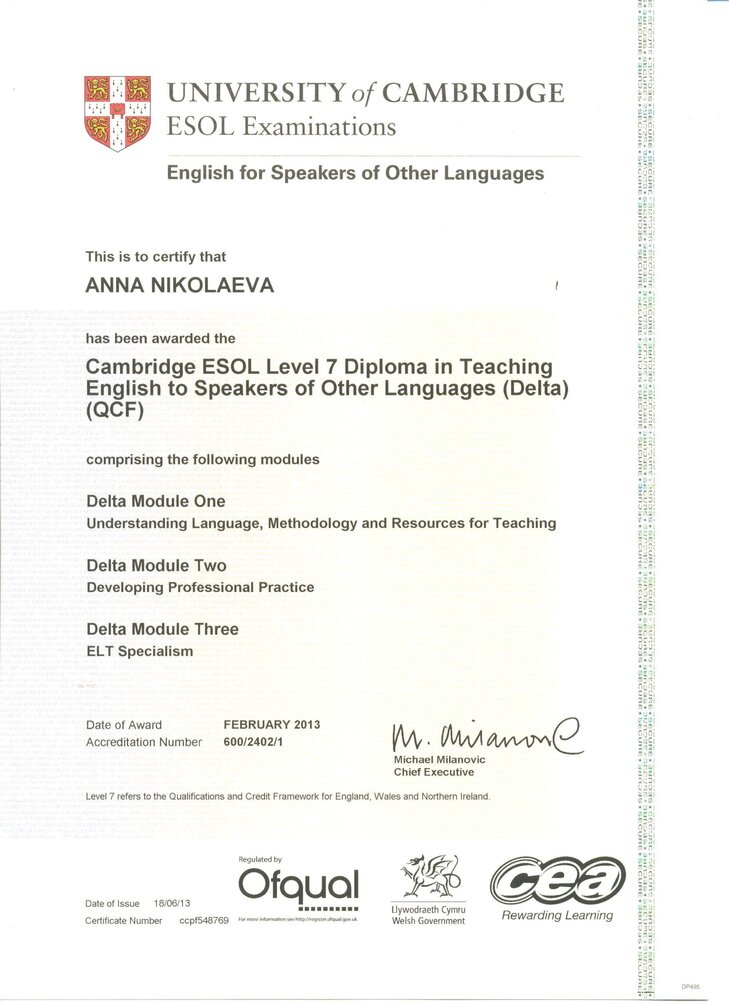
Жизнь после Delta
Безусловно, Delta дала мне бесценный опыт, и не только в педагогическом и методическом смысле. Я стала лучше понимать, какие возможности есть у меня как у преподавателя, делать более осознанный выбор материалов, подхода и заданий, чувствовать себя более свободно и независимо в аудитории. И конечно, Delta научила меня верить в себя и добиваться своего. Даже когда кажется, что все потеряно. Через год после получения диплома я уже работала академическим директором международного языкового центра, и опыт lesson observations and feedback очень мне помог в работе с коллегами. Delta — это трудно, но это того стоит.
DELTA is an English language teaching (ELT) qualification for experienced Teachers of English as a Foreign Language (TEFL) and Teachers of English to Speakers of Other Languages (TESOL). It is provided by Cambridge English Language Assessment through authorised Cambridge English Teaching Qualification centres and can be taken either full-time or part-time.[1] The full name of the course was originally the Diploma in English Language Teaching to Adults and is still referred to in this way by some course providers. However, in 2011 the qualification title was amended on the Ofqual register to the Cambridge English Level 7 Diploma In Teaching English to Speakers of Other Languages (DELTA)[2] in order to reflect that the wider range of students that teachers might have, including younger learners.
Delta is designed for candidates with previous English language teaching experience. Candidates have usually completed an initial teaching qualification and typically have at least one year’s teaching experience. It is suitable for first language and non-first language speakers of English who are teaching English as a second or foreign language (ESL and EFL) in primary, secondary and adult contexts. Candidates should have English language skills equivalent to at least level C1 of the Common European Framework of Reference for Languages.
Delta consists of three modules, which can be taken together or separately, in any order, and over any time period. Module Two requires course attendance at an authorised Delta centre so that teaching practice can be supported and assessed. There is no requirement to take a course at a recognised Delta centre for Modules One and Three, although most candidates do. Successful candidates receive a certificate for each module passed, as well as an overall certificate upon the successful completion of all three modules.
All three modules emphasise both theory and practice, although teaching practice is only directly assessed in Module Two. Delta also gives teachers an opportunity to pursue areas of specialism in Module Three (an extended assignment on syllabus design, course planning and assessment in the context of a selected ELT specialist area, or an extended assignment on ELT management in the context of a selected management specialist area).[3]
Delta is designed to help candidates to develop as teachers and progress to new career opportunities. It is regulated at Level 7 of the Qualifications and Credit Framework for England, Wales and N. Ireland[4] and is suitable for teachers at Developing or Proficient level on the Cambridge English Teaching Framework.[5]
History[edit]
Until 1988 the Royal Society of Arts (RSA) ran two English as a Foreign Language (EFL) diploma level programmes for native and non-native speaker teachers, the DTEFLA (Diploma in the Teaching of English as a Foreign Language to Adults) and the DOTE (Diploma for Overseas Teachers of English).
In 1988, Cambridge English Language Assessment (then known as the University of Cambridge Local Examinations Syndicate (UCLES)) reached an agreement with the RSA to take over its suite of teacher training courses and qualifications. UCLES integrated DTEFLA and DOTE to launch the Cambridge DELTA (Diploma of English Language Teaching to Adults).[6]
In 2008 Delta was revised to its current format, making it suitable for all teaching age groups and divided into three free-standing modules, which can be combined to constitute the Diploma qualification.[7]
The earlier formats of the qualification were equivalent in level to the current Delta qualification but were more narrowly focused on teaching general English (as a foreign language) to adult learners; whereas the current qualification is more broadly focused on teaching a wider range of learners with a variety of needs.)
The current qualification also has a more practical orientation. The written examination, which previously consisted of a number of essay questions, now uses pieces of data (such as samples of students’ work, authentic texts and published ELT materials) for analysis, comment and evaluation. Candidates of the current qualification are not required to write traditional academic essays.
Admissions[edit]
Delta is suitable for experienced teachers, who have usually completed an initial teaching qualification, and have at least one year’s ELT teaching experience in adult, primary or secondary teaching contexts. Delta modules may be taken by teachers, at any time during their career, who wish to:
- Refresh their teaching knowledge
- Review and update their practice
- Extend their expertise in a specialist area.[8]
Teachers without an initial teacher training qualification and English language teaching (ELT) experience may be more suited to another qualification such as CELTA. Delta is suitable for teachers at Developing or Proficient levels of the Cambridge English Teaching Framework, whereas CELTA is designed for teachers mostly at Foundation level.[9]
Delta candidates should have English language skills equivalent to at least level C1 of the CEFR – a standard of English which enables the teaching and understanding of language issues at a range of levels, from beginner to upper-intermediate students.
Although the modules are designed as a complementary set, candidates to do not have to take all three modules and can select and apply for a combination of modules according to need. Candidates wishing to enter for any, or all three, modules must register at an authorised Cambridge English Language Assessment examination or teaching qualification centre. Candidates wishing to enter Module Two are required to take Module Two at an authorised Delta centre. Centres have their own selection procedures for entry onto Module Two.[10]
Delta aims and main features[edit]
Delta is aimed at those wanting to update their teaching knowledge and improve their practice. It is designed to help candidates to:
- Extend knowledge and understanding of the principles and practice of English language teaching
- Critically examine current beliefs and practices as a teacher
- Apply new knowledge and understanding to a current teaching role
- Extend knowledge of English language teaching in contexts other than adult learners
- Develop their career and to apply for more senior roles.[11]
Delta consists of three modules, each of which is separately assessed and certified. Achievement of a Pass in all three modules confers the status of a full Delta qualification. Candidates may choose to do any or all of the modules; there is no time limit for the completion of all three modules and there is no limit on the number of times a candidate can take a module.
The modular framework aims to provide an accessible professional development programme with flexible entry points. Candidates can take the modules in any order, although it is most practical to take them in order, as Modules Two and Three assume the candidate has knowledge and competencies gained in the previous module(s).[12]
The three Delta Modules are:
Module One – Understanding language, methodology and resources for teaching
- This module focuses on the background to teaching and learning English in a range of ELT contexts
Module Two – Developing professional practice
- This module focuses on developing awareness and expertise in relation to the principles and professional practice of teaching English in a range of ELT contexts
Module Three – Option 1: Extending practice and English language teaching specialism or Option 2: English language teaching management.
- This module focuses on broadening candidates’ knowledge of a chosen specialism and developing understanding of syllabus design, testing and assessment (Option 1), or of ELT management (Option 2).
All three modules focus on both theory and practice, though teaching practice is only directly assessed in Module Two. Candidates have the opportunity to focus on a specialist area of teaching in Modules Two and Three.
Candidates may either follow a course at a centre or prepare independently for Modules One and Three. Module Two requires course attendance at an approved Delta centre so that teaching can be supported and assessed. A Module Two course will involve 200 learning hours, including 100 tutor facilitated hours and 100 independent learning hours (reading and research and assignment preparation).
The course dates, fees, course format (e.g. face-to-face learning, distance learning) are determined by each centre. The exact nature of each course will vary from centre to centre,[13] but all courses will cover the same content points, as set out in the Delta syllabus developed by Cambridge English Language Assessment.
Course syllabus[edit]
The Delta syllabus includes three modules, which are assessed by a combination of exams, teaching practice and written coursework, and an extended essay.
- Module One: written exam
- Module Two: practical assessment and portfolio of coursework
- Module Three: extended essay
The following section outlines the main content points of each module. The full learning outcomes and indicative content are available in the course syllabus.
Module One – Understanding language, methodology and resources for teaching[edit]
Module One has six syllabus content points:
- Theoretical perspective on language acquisition and language teaching
- Different approaches and methodologies including current developments
- Language systems and learners’ linguistic problems
- Language skills and learners’ problems
- Knowledge of resources, materials and reference sources for language learning
- Key concepts and terminology related to assessment.
Module One is set at a postgraduate level (with 20 credit value).[14] It is assessed through a written exam (externally marked) consisting of two 90-minute papers.
Module Two – Developing professional practice[edit]
Module Two has seven syllabus content points:
- The language learner and the language learning context
- Preparation for teaching English language learners
- Evaluating, selecting and using resources and materials for teaching purposes
- Managing and supporting learning
- Evaluation of lesson preparation and teaching
- Observation/Evaluation of other teachers’ lessons
- Professionalism and opportunities for professional development.
Module Two is set at a postgraduate level (with 20 credit value). Assessment takes place during the course through assessed teaching practice, assignments and background essays as well as via a teaching practice assignment which is externally assessed by a Cambridge English assessor.
Module Three – Extending practice and ELT specialism (option 1) or ELT management (option 2)[edit]
Candidates have a choice of two options for Module Three:
- Option One: Extending practice and English language teaching specialism. This focuses on needs analysis, syllabus design, course planning and assessment in the context of a selected specialism (e.g. English for academic purposes, teaching exam classes, young learners, one-to-one teaching).
- Option Two: English language teaching management. This focuses on situation analysis and planning, and implementing change in the context of a selected management specialism.[15]
Module Three is set at a postgraduate level (with 20 credit value).[16] It is assessed through an externally marked extended assignment of 4,000 – 4,500 words focused on a chosen teaching specialism (Option 1) or a chosen ELT management specialism (Option 2).
Option One – Extending practice and ELT specialism
Option One has six syllabus content points:
- Research into specialist areas
- Syllabus design: principles, influences on, methodological effects of, and major syllabus types as applied to the specific learning context
- Designing syllabus and teaching programmes to meet the needs of learners in the specific context of their selected specialism
- Course design and development in the specific context of their selected specialism
- The principles and practice of testing and assessment and application to the candidate’s specialist area
- Monitoring and evaluating the effectiveness and quality of courses and programmes of study.
Option Two – English language teaching management
Option Two has four syllabus content points:
- Research into a chosen management specialism
- Methods of situation analysis
- Design of change proposals
- Implementation of change proposals.
Candidates will need access to management data from a relevant language teaching context.[17]
Assessment[edit]
Assessment is conducted on a module-by-module basis.
Module One – Understanding language, methodology and resources for teaching[edit]
Module One has a written examination (externally set and marked), which consists of two 90-minute written papers with a 30-minute break between each paper (3 hours 30 minutes total). Paper 1 has five tasks, requiring labelling, short answer and longer written responses. Paper 2 has three tasks, requiring longer, written responses. All tasks are compulsory.
Paper 1 – total of 100 marks available
Task 1 (6 marks) has six definitions of ELT-related terms. Candidates supply the correct term for each definition.
Task 2 (12 marks) has four ELT terms. Candidates supply a definition and an appropriate example for each term.
Task 3 (12 marks) has a writing or speaking skills task from a published ELT course or exam material and a number of language features (e.g. ordering information, linking information, use of appropriate salutation) that learners would need to use to complete the activity successfully. Candidates identify three further appropriate language features which learners would need to use to complete the task.
Task 4 (20 marks) contains an authentic spoken (transcribed) or written text produced by a learner. Candidates identify a total of four strengths and weaknesses in the text based on specified areas, e.g. use of collocation, communicative success, cohesion.
Task 5 (50 marks) contains an authentic text, e.g. a newspaper article, a leaflet, a brochure, a form. Candidates identify features of the text which are typical of the genre and explain the form, meaning, use and phonological features of three different language items/areas highlighted in the text. For one of the areas, candidates may be asked to identify possible learner problems with form, meaning, use and pronunciation, as appropriate.
Paper 2 – total of 100 marks available
Task 1 (18 marks) contains an extract from or a description of a test, along with the context and purpose of its use. Candidates provide an evaluation of its effectiveness for the stated purpose, making six points.
Task 2 (42 marks) contains an extract from a published course book. In Part a, candidates identify the purpose of specified individual activities and stages in the material. In Part b, candidates identify how specified activities and stages in the material combine with those discussed in Part A. In Part c, candidates comment on key assumptions about language learning and skills development that are evident in some or all of the activities and stages.
Task 3 (40 marks) contains ELT-related input, e.g. from a methodology / resource book, lesson plan extract, transcript of teachers discussing a lesson, tutor feedback. Candidates answer specific questions about the material and discuss implications this view of teaching has for classroom practice. This could involve analysis of current and historical perspectives on approaches and methodologies, theories of language acquisition, resources, and learner and teacher roles. Candidates are marked on the points they make and on the depth of their answer.
Module Two – Developing professional practice[edit]
Module Two is assessed through five assignments:
- A two-part Professional Development assignment
- Two Language System assignments
- Two Language Skills assignments.
The assignments consist of written essays (2,000-2,500 words per essay) and for the Language System and Language Skills assignments: the planning, teaching and evaluation of a lesson. Assignments are completed throughout the course at intervals determined by the centre.
The Professional Development assignment and three of the Language Systems and Language Skills assignments are internally assessed by Delta course tutors. One of the Language Systems or Skills Assignments is externally assessed by a Cambridge English approved external assessor. Assessment of the lesson includes the candidate’s evaluation of the lesson, which is sent to the assessor by the centre within 48 hours of the lesson taking place.
Professional Development assignment
This assignment has two parts:
- Part 1: Reflection and action (2,000-2,500 words). A reflective assignment worked on at different stages of the course.
- Part 2: Experimental practice (1,500-2,000 words). An investigation into an area of practice which is new for the teacher.
The assignment is based on an action plan developed at the start of the course and one observed lesson, which is a diagnostic observation of teaching that informs the rest of the programme.
The assignment aims to encourage teachers to reflect on their teaching and experiment with procedures, techniques, materials and resources. The assignment is completed during the course and includes observation and reflection on others’ teaching as well as tutor observation of the candidate’s own teaching. The Experimental Practice can be set at any time during the course.
Language Systems assignments
The assignments consist of a background essay (2,000-2,500 words) exploring an area of language systems and related teaching and learning issues, and the planning, teaching and evaluation of a lesson related to the chosen area. Each of the two assignments must focus on a different area of language systems, e.g. grammar, lexis, phonology, discourse.
Language Skills assignments
The assignments consist of a background essay (2,000-2,500 words), with research and analysis of an aspect of language skills and related teaching and learning issues, and the planning, teaching and evaluation of a lesson related to the chosen area. One of the assignments must focus on a productive skill (speaking or writing) and the other assignment must focus on a receptive skill (reading or listening).
Module Three – Extending practice and ELT specialism (option 1) or ELT management (option 2)[edit]
Module Three is assessed through an Extended Assignment (4,000-4,500 words excluding appendices).
Option 1: Extending practice and ELT specialism
Candidates carry out an independent investigation, leading to the design of a course programme related to their chosen specialist area. Candidates can select one of the following specialisms:
- Business English
- Teaching young learners or young adults (age group with 5-year range, e.g. 8-13, 14-19)
- English for Specific Purposes (ESP)
- English for Academic Purposes (EAP)
- Teaching examination classes
- Teaching one-to-one
- ESOL learners with literacy needs
- CLIL / Embedded ESOL
- Teaching monolingual classes
- Teaching multilingual classes
- Teaching in an English-speaking environment
- Teaching in a non-English speaking environment
- Teaching learners online / through distance or blended learning
- Teaching English to learners with special requirements, e.g. visual / hearing impairment, dyslexia
- Language development for teachers
- Language support, e.g. mainstream teaching programmes, specialist skills support.
Candidates can narrow down their specialist area to research a particular aspect in appropriate depth. For example, English for Special Purposes could be narrowed down to: Teaching communication skills to doctors working in a general hospital.
Assignments should cover the following five categories in the mark scheme (total marks available 140):
- Grasp of topic (maximum 35 marks) – review of relevant literature; understanding of key issues; application of knowledge to practice.
- Needs analysis and comments (maximum 28 marks) – key principles of needs analysis and diagnostic testing; analysis of the diagnostic test and identification of learner needs; discussion and justification of priorities.
- Course proposal (maximum 35 marks) – key principles of syllabus and course design; justification of learning aims, teaching approach and the course in terms of learner needs; design of course.
- Assessment (maximum 28 marks) – key principles of different types of assessment; justification of assessment procedures in terms of course design and learner needs; application of assessment procedures.
- Presentation and organisation (maximum 14 marks) – academic writing, language and referencing; presentation, coherence and organisation; clarity of argument and quality of ideas.
Option 2: ELT management
Candidates research a chosen ELT Management specialism, leading to the design of a change proposal and implementation plan to overcome issues identified in their analysis. Candidates select one of the following specialisms:
- Academic management
- Human resource management
- Customer service
- Marketing
Candidates can narrow down their specialist area to research a particular aspect in appropriate depth. For example, Human resource management could be narrowed down to: Staff development.
Assignments (4,000-4,500 words in total) should cover the following five categories in the mark scheme:
- Introduction: review and key issues (max 1,200 words) – rationale for the choice of specialism and review of the key issues including literature review, general ELT management principles and specific principles relating to the chosen specialism
- Situation analysis and commentary (max 1,000 words) – analysis of the language teaching operation and how the results of this analysis were used to clarify the areas requiring attention
- Proposal and justification (max 1,200 words) – discussion of the content and structure of the proposed changes in relation to the key issues and principles discussed in Part 1 and the priorities for improvement identified in Part 2
- Implementation (max 900 words) – explanation of how the proposed change will be implemented and why (with reference to relevant literature) accompanied by a detailed action plan
- Conclusion (max 200 words) – consideration of how the proposal is linked to the key issues outlined in the introduction.[18]
Results[edit]
Candidates receive a certificate for each module. Achievement of a passing grade in all three modules confers the status of a full Delta qualification for which candidates receive an overall certificate on request.[19]
For each module there are three passing grades: Pass with Distinction; Pass with Merit; and Pass.
Pass with Distinction
- Module One – awarded to candidates who demonstrate comprehensive and accurate knowledge, a high level of familiarity with the full range of ELT/ESOL concepts, theories and practices and, show a high level of insight in their analysis
- Module Two – awarded to candidates who, receive a distinction in the externally assessed lesson, with a minimum of a pass for the external Background essay, a merit or distinction for the submitted internally assessed lesson, with a minimum of a pass for the Background Essay and a pass for the professional development assignment (PDA)
- Module Three – awarded to candidates producing an excellent piece of work which shows a very high level of understanding, analysis and application, and which displays originality and critical insight.
Pass with Merit
- Module One – awarded to candidates who demonstrate comprehensive and generally accurate knowledge, a high level of familiarity with a wide range of ELT/ESOL concepts, theories and practices and, show a good level of insight in their analysis
- Module Two – awarded to candidates who, receive a merit in the externally assessed lesson, with a minimum of a pass for the external Background essay, a pass or merit for the submitted internally assessed lesson, with a minimum of a pass for the Background Essay and a pass for the professional development assignment (PDA)
- Module Three – awarded to candidates producing a very good piece of work which shows a high level of understanding, analysis and application, and which displays some originality and critical insight.
Pass
- Module One – awarded to candidates who demonstrate generally accurate knowledge, a sound level of familiarity with a range of ELT/ESOL concepts, theories and practices and, show a good level of insight in their analysis
- Module Two – awarded to candidates who, receive a pass in both parts of the externally assessed lesson, a pass for both parts of the submitted internally assessed lesson, and a completed professional development assignment (PDA)
- Module Three – awarded to candidates producing a satisfactory piece of work which shows an acceptable level of understanding, analysis and application, and which meets the requirements of the assignment.
Candidates who fail to meet criteria in any assessed components will receive a Fail.[20] Although candidates are required to have experience and to demonstrate aptitude before beginning the course, a substantial minority of candidates (just over a quarter) fail Module One. For Modules Two and Three, less than 3% of candidates’ performances are graded as a «fail» but about one sixth of candidates are given a «referral» and cannot pass unless they successfully resit the assessment.[21]
Candidate results are sent by Cambridge English Language Assessment to the centre two months after the completion of a module. A certificate is then sent to centres one month after a candidate has received their results.[22]
Course delivery format[edit]
Delta courses can be taken full-time or part-time and either face-to-face, online or using distance learning (NB: the Teaching Practice component of Module Two must be conducted in a face-to-face environment). All versions of Delta lead to the same internationally recognised certificate.
Full-time courses, conducted face-to-face in an authorised Teaching Qualification centre typically last seven to twelve weeks (depending on the centre).[23] Part-time courses, conducted face-to-face in an authorised Teaching Qualification centre, can last anything from a few months to up to 18 months (depending on the centre).[24]
Delta is available in many different countries around the world. A directory of global Cambridge English teaching qualification centres and their contact details can be accessed on the Cambridge English Language Assessment website.
Distance learning[edit]
Candidates can take the Delta modules through distance learning programmes, which combine both face-to-face and online learning.[25] This means that teachers who do not have access to a local Cambridge English Teaching Qualifications centre can also take Delta courses.[26]
Usage[edit]
Delta aims to improve teaching practice, support career development and preparation for more senior roles. The UK Office of Qualifications and Examinations Regulation (Ofqual) regulates all three Delta modules at Level 7 of the Qualification and Credit Framework (QCF) for England, Wales and N. Ireland – the same level as a master’s degree or a professional diploma in the European Union.[27]
Delta can facilitate progression to other qualifications, such as MAs in Teaching English as a Foreign Language (TESOL), with some MA programmes accepting Delta credits.[28] Examples of Higher Education Institutions which offer credits or exemptions to Delta holders include:
- Aston University[29]
- Institute of Education, University of London[30]
- King’s College London[31]
- Norwich Institute for Language Education (NILE) in partnership with University of Chichester [32]
- Sheffield Hallam University[33]
- University College London (UCL)[34]
- University of Bath[35]
- University of Derby[36]
- University of Exeter [37]
- University of Manchester [38]
- University of Nottingham [39]
- University of Reading [40]
- University of Warwick.[41]
Delta is accepted around the world by educational institutions, employers and international English Language teaching organisations. International ELT organisations that recognise Delta include organisations such as: British Council overseas teaching centres; International House and Bell Educational Services.[42]
Preparation[edit]
Free preparation materials, including a past exam paper and examination report, are available from the Cambridge English Language Assessment website
Cambridge English Teacher[edit]
Delta candidates receive a free 1-year membership of Cambridge English Teacher along with their final certificate.[43] Cambridge English Teacher provides continuous professional development for English language teachers and is run by two departments of the University of Cambridge: Cambridge English Language Assessment and Cambridge University Press.
See also[edit]
- Cambridge English Language Assessment
- CELTA
- TKT (Teaching Knowledge Test)
- LTCL DipTESOL — An equivalent qualification provided by Trinity College London
- CertTESOL
- Cambridge English Teaching Framework
External links[edit]
- Official website
References[edit]
- ^ Wilkinson, D. «Everything you need to know about the Delta». Retrieved 24 August 2015.[permanent dead link]
- ^ «The Register of Regulated Qualifications: Cambridge English Level 7 Diploma In Teaching English to Speakers of Other Languages (Delta) details». register.ofqual.gov.uk. Retrieved 30 January 2020.
- ^ «Archived copy» (PDF). Archived from the original (PDF) on 14 July 2015. Retrieved 18 May 2015.
{{cite web}}: CS1 maint: archived copy as title (link) Accessed 18 May 2015 - ^ «The Register of Regulated Qualifications: Qualifications search results». register.ofqual.gov.uk. Retrieved 18 May 2015.
- ^ www.cambridgeenglish.org (PDF) http://www.cambridgeenglish.org/images/165723-teacher-mapping-document.pdf. Retrieved 18 May 2015.
- ^ Hawkey, R. & Milanovic, M. (2013) Cambridge English Exams: The First Hundred Years, Cambridge University Press, pp.107 – 109 240 – 241
- ^ Pulverness, A. (2015) A brief history of Cambridge English Language Assessment teaching qualifications in Studies in Language Testing (SiLT), Volume 42, Assessing Language Teachers Professional Skills and Knowledge, Cambridge University Press.
- ^ «DELTA (Diploma in Teaching English to Speakers of Other Languages) | Cambridge English». www.cambridgeenglish.org. Retrieved 18 May 2015.
- ^ www.cambridgeenglish.org (PDF) http://www.cambridgeenglish.org/images/165723-teacher-mapping-document.pdf. Retrieved 18 May 2015.
- ^ www.cambridgeenglish.org (PDF) http://www.cambridgeenglish.org/images/181161-delta-handbook-for-tutors-and-candidates-document.pdf. Retrieved 18 May 2015.
- ^ http://www.cambridgeenglish.org/teaching-english/teaching-qualifications/delta/why-take-delta/ Accessed 18 May 20115
- ^ http://www.englishlanguagehouse.co.uk/downloads/139463-delta-candidate-leaflet-document.pdf[permanent dead link] Accessed 18 May 2015
- ^ «DELTA (Diploma in Teaching English to Speakers of Other Languages) | Cambridge English». www.cambridgeenglish.org. Retrieved 18 May 2015.
- ^ www.cambridgeenglish.org (PDF) http://www.cambridgeenglish.org/images/22096-delta-syllabus.pdf. Retrieved 18 May 2015.
- ^ «About the DELTA modules | Cambridge English». www.cambridgeenglish.org. Retrieved 18 May 2015.
- ^ www.cambridgeenglish.org (PDF) http://www.cambridgeenglish.org/images/22096-delta-syllabus.pdf. Retrieved 18 May 2015.
- ^ «About the DELTA modules | Cambridge English». www.cambridgeenglish.org. Retrieved 18 May 2015.
- ^ www.cambridgeenglish.org (PDF) http://www.cambridgeenglish.org/images/181161-delta-handbook-for-tutors-and-candidates-document.pdf. Retrieved 18 May 2015.
- ^ «About the DELTA modules | Cambridge English». www.cambridgeenglish.org. Retrieved 18 May 2015.
- ^ www.cambridgeenglish.org (PDF) http://www.cambridgeenglish.org/images/181161-delta-handbook-for-tutors-and-candidates-document.pdf. Retrieved 18 May 2015.
- ^ «Cambridge ESOL: Grade Statistics 2010 — Teaching Knowledge Test (TKT)». gradestatistics.cambridgeenglish.org. Retrieved 18 May 2015.
- ^ «DELTA results | Cambridge English». www.cambridgeenglish.org. Retrieved 18 May 2015.
- ^ http://www.tefl.net/tefl-courses/faq-cambridge-delta.htm
http://www.ihlondon.com/courses/delta/ «Cambridge Delta Courses — International Teacher and Training Centre». Archived from the original on 22 May 2015. Retrieved 18 May 2015.
Accessed 18 May 2015 - ^ «Oxford House College » Courses » Study the Cambridge DELTA at Oxford House College». Archived from the original on 30 May 2015. Retrieved 18 May 2015. http://www.british-study.com/teacher-training/courses/delta.php http://thedistancedelta.com/howitworks/ http://www.languages.ac.nz/teacher-training/delta-course/ Accessed 18 May 2015
- ^ «Cambridge Delta | www.nile-elt.com». Archived from the original on 6 July 2017. Retrieved 1 March 2016.
- ^ http://www.cambridgeenglish.org/teaching-english/teaching-qualifications/delta/why-take-delta/ «Online TEFL courses». Archived from the original on 16 March 2015. Retrieved 18 May 2015. http://www.ihlondon.com/courses/distance-delta/ Archived 2015-05-23 at the Wayback Machine https://www.nile-elt.com/courses http://thedistancedelta.com/ Accessed 18 May 2015
- ^ «The Register of Regulated Qualifications: Qualifications search results». register.ofqual.gov.uk. Retrieved 18 May 2015.
- ^ «Archived copy» (PDF). Archived from the original (PDF) on 14 July 2015. Retrieved 18 May 2015.
{{cite web}}: CS1 maint: archived copy as title (link) Accessed 18 May 2015 - ^ «MSC programmes in Teaching English to Speakers of Other Languages (TESOL)». Archived from the original on 21 April 2015. Retrieved 18 May 2015. Accessed 18 May 2015
- ^ «UCL – University College London». www.ioe.ac.uk. Retrieved 18 May 2015.
- ^ www.kcl.ac.uk https://www.kcl.ac.uk/prospectus/graduate/applied-linguistics-and-english-language-teaching/structure. Retrieved 18 May 2015.
- ^ «MA Programme | www.nile-elt.com». Archived from the original on 18 January 2017. Retrieved 1 March 2016.
- ^ http://www.prospects.ac.uk/search_courses_details/sheffield_hallam_university/teaching_english_to_speakers_of_other_languages_tesol/9042?criteria.institutionTnrs=3975[permanent dead link] Accessed 18 May 2015
- ^ «UCL – University College London». www.ioe.ac.uk. Retrieved 18 May 2015.
- ^ www.bath.ac.uk http://www.bath.ac.uk/study/pg/programmes/ma-in-teac-engl-to-spea-of-othe-lang-ma-in-teso/. Retrieved 18 May 2015.
- ^ «Education MA — Education — University of Derby». derby.ac.uk. Retrieved 18 May 2015.
- ^ www.exeter.ac.uk http://www.exeter.ac.uk/postgraduate/taught/education/tesolsummer/#Entry-requirements. Retrieved 18 May 2015.
- ^ «Archived copy» (PDF). Archived from the original (PDF) on 4 March 2016. Retrieved 18 May 2015.
{{cite web}}: CS1 maint: archived copy as title (link) Accessed 18 May 2015 - ^ www.nottingham.ac.uk http://www.nottingham.ac.uk/pgstudy/courses/education/teaching-english-to-speakers-of-other-languages-%28tesol%29-by-web-based-distance-learning-ma.aspx. Retrieved 18 May 2015.
- ^ www.reading.ac.uk https://www.reading.ac.uk/english-language-and-applied-linguistics/PostgraduateTaught/elal-pg-taught-english-language-entry-requirements.aspx#prior. Retrieved 18 May 2015.
- ^ www2.warwick.ac.uk http://www2.warwick.ac.uk/fac/soc/al/degrees/ma/. Retrieved 18 May 2015.
- ^ www.britishcouncil.org http://www.britishcouncil.org/jobs/careers/english/senior-teachers. Retrieved 18 May 2015.
- ^ «DELTA (Diploma in Teaching English to Speakers of Other Languages) | Cambridge English». www.cambridgeenglish.org. Retrieved 18 May 2015.
Сдала вчера экзамен DELTA – Diploma in English Language Teaching to Adults – международный диплом преподавателя английского взрослым. Для тех, кто не в теме, – это очень круто
Немного предыстории. С самого начала моей преподавательской деятельности работодатели, коллеги и просто сочувствующие выносили мне мозг сертификатом CELTA. Это примерно то же самое, что DELTA, только на уровень ниже. Дескать, и квалификацию он твою подтверждает, и в любую языковую школу возьмут без базара без собеседования. А меня возмущало то, что после профильного образования, и очень качественного, надо сказать, меня ставили на один уровень с сантехниками из Огайо, понаехавшими в Россию преподавать великий и могучий английский. Собственно, CELTA Certificate для таких и был задуман – без образования и без особого опыта.
Все эти годы я возмущалась дискриминацией классных российский преподавателей и искала пути получить DELTA, которую без CELTA никто мне в России давать не хотел. Наш монополист BKC то ли бабки зарабатывает на такой системе, то ли страхует себя от лузеров на DELTA, а скорее, и то, и то.
Ну и обходной путь был найден – Distance DELTA, напрямую из Лондона – с любовью.
Теперь о самом курсе.
Состоит из 3 модулей, я пока сдала первый. В январе заполнила заявку, сделала какие-то тестовые задания на профпригодность, общие знания методики и языка, а в конце февраля начался сам курс.
Курс DELTA длился 3 месяца: каждую неделю присылали темы на неделю, списки литературы, которую надо изучить, и тестовое задание в формате подготовки к экзамену. Курс очень интенсивный, и пускай слово “дистанционный” никого не вводит в заблуждение. Очень много чтива, последующего осмысления и выполнения контрольных, где всю теорию применяешь на практике и списать тупо неоткуда. И это при том, что продолжаешь работать и вести уроки.
Есть закрытый форум для участников курса DELTA (которые разбросаны по всему миру и в основном – нэйтив спикеры), где можно обсудить всё, что касается учебы. Но туда я наведывалась только в первую неделю, когда казалось, что курс – это халява. Потом просто не стало хватать времени.
Каждую контрольную проверяет тьютор и присылает свои комментарии.
Вот темы 1 модуля DELTA:
1. History of ELT/История преподавания английского. Развитие методик и подходов. О боги, сколько креатива напридумывали передовики до нас! А нынче все уперлись в коммуникативную методику…
2. Language Acquisition. Теории освоения языка: родного и иностранного. Мегаинтересная тема с кучей исследований работы мозга.
3. Approaches to Language Focus. Language Focus – это языковая составляющая урока, будь то грамматика, языковые функции, темы. А все эти approaches – о том, как же все-таки презентовать язык. И тоже, черт ногу сломит, ибо первую P в известном PPP можно воплотить тучей разных способов.
3. Focus on the Learner. Тут мы вникали в тонкости душевной организации наших питомцев учеников: мотивация, индивидуальные стили обучения, индивидуальные стратегии, личность, способности…
4. The Verb Phrase. Глагольная фраза (если что, я совершенно не помню (не знаю?), как это называется на русском, ибо никогда в жизни не изучала методику преподавания английского на русском языке). Это уже чисто языковые заморочки, никакой лирики и хитросплетений души.
5. The Noun Phrase. Вот какая это фраза, а? Существительная? Существенная? Номинальная? Простите великодушно, но с терминологией на русском у меня беда. Краткое содержание: все, что вы хотели знать о существительном, но боялись спросить
6. Lexis. Антонимы, синонимы, омонимы-омографы-омофоны, хайпонимы, хайпернимы Это я не ругаюсь сейчас. Значения, коннотация, стиль, жанры, части речи, ментальный лексикон: как организована лексика английского языка, и как она хранится в нашей памяти.
7. Phonology в трех частях. Первая часть фонологии – отдельные фонемы, аллофоны (гласные, согласные, дифтонги), их классификация, особенности, как учить произношению отдельных звуков (стандартная последовательность: discrimination/различение-recognition/узнавание-production/произношение).
Phonology 2. Вторая часть – характеристики и особенности связной речи, фразовое ударение, assimilation, catenation, elision и прочие приблуды.
Phonology 3. Интонация, тон, ритм, функции интонации. Ну-ка, что за дискурсивная функция у интонации?
8. Testing and Assessment. Когда тестировать, что тестировать, зачем тестировать, как тестировать и кто, собственно, судьи Виды тестов, их плюсы-минусы, применение в конкретных случаях. Оценка качества самого теста.
9. Преступление и Наказание. Error and Correction. Почему учащиеся делают ошибки? Чем отличается error от mistake, категоризация ошибок (прикиньте, да?). Что исправлять и что – нет, как исправлять.
10. Materials and Resources. Какие вообще материалы доступны для изучения/обучения английскому, как оценить их качество, принципы отбора материалов, адаптирование материалов под нужды своих учеников.
11. Written Discourse. Моя любовь, хлебом не корми, дай подискурсировать ) Что такое дискурс, средства связности, жанры, контекст. Я лучше прямо сейчас остановлюсь, или я не остановлюсь никогда: уж очень люблю эту область.
12. Spoken Discourse. Как ведет себя язык в речи. А это две большие разницы.
13. Writing Skills. В первой части изучали как учить писать, какие основные трудности возникают у учеников, как развивать навыки и суб-навыки, как оценивать письменные работы.
14. Listening Skills. Виды аудирования, типы текстов для аудирования, стили и техники, трудности. Отдельной большой темой был диспут на тему “Можно ли научить слушать и слышать ИЛИ аудирование – это по большей части тестирование того, что ученики уже умеют”. И, кстати, до курса никогда не задумывалась над этим.
15. Speaking Skills. Аккуратность VS беглость речи (accuracy vs. fluency), как учить говорить, какие и почему возникают трудности, виды болтовни говорения.
16. Reading Skills. Что читать, зачем читать, как читать. Как учить читать и развивать навыки эффективного чтения.
Автор: Дарья Масловская
более 100 обучающих видео
по 20 — 60 минут
180 дней доступ к видеоурокам

готовые методические материалы
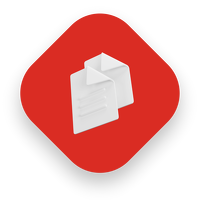
конспекты уроков и удобная навигация


чек-листы и инструкции для педагога
и его студентов
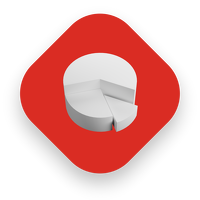
проектные практические задания
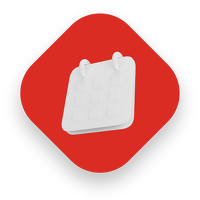
еженедельные онлайн практикумы
от экспертов ELT Uni

подробная обратная связь
и разборы сложных ситуаций
*удостоверение оплачивается отдельно после прохождения
всех 8 модулей программы и наличии высшего образования.
Учебная программа соответствует требованиям Федерального закона
«Об образовании в Российской Федерации» от 29.12.2012 №273-ФЗ
Лицензия: No Л035-01218-23/00615861
Погружение в профессию «преподаватель английского языка» и углубление в психологические особенности студентов при обучении.
- 7 уроков
- 28 дополнительных материалов
- 2 практических урока
- тестирования по урокам
- проект
- Вводный урок ― 90 минут.
- Урок 1. Мозг и обучение: нейрофизиологические процессы ― 85 минут.
- Урок 2. Теории и техники для вовлечения студентов ― 80 минут.
- Урок 3. Психология обучения ― 60 минут.
- Урок 4. Коучинг и лингвокоучинг ― 60 минут.
- Урок 5. Логическое и критическое мышление ― 205 минут.
- Урок 6. Практика решений в педагогических ситуациях. Часть 1 ― 65 минут.
- Урок 7. Практика решений в педагогических ситуациях. Часть 2 ― 40 минут.
Проектная работа: кейс-стади: описание вашей ситуации и предложения по ее решению.
Фундамент для преподавательской карьеры: методика обучения языковым системам.
- 3 урока
- 18 дополнительных материалов
- тестирования по урокам
- проект
- Урок 1. Планирование и целеполагание – 130 минут.
- Урок 2. Обучение грамматике – 150 минут.
- Урок 3. Обучение лексике – 145 минут.
Проектная работа: План урока по языковой системе.
Полное погружение в методику обучения речевым навыкам.
- 3 урока
- 5 дополнительных материалов
- тестирования по урокам
- Урок 1. Обучение аудированию ― 120 минут.
- Урок 2. Обучение чтению ― 95 минут.
- Дополнительный урок: Обучение характеристикам слитной речи для преодоления языкового барьера ― 40 минут.
Проектная работа: после 4-го модуля.
Освоение методики, получение конкурентного преимущества благодаря умению обучать мягким навыкам.
- 3 урока
- 12 дополнительных материалов
- тестирования по урокам
- Урок 1. Обучение письму ― 130 минут.
- Урок 2. Обучение говорению ― 95 минут.
- Урок 3. Обучение метапредметным умениям ― 65 минут.
Проектная работа: План урока по речевому навыку.
Умение создавать интерактивные занятия, ориентированные на конкретный тип личности студента.
Wow-эффект от проведенных занятий
- 3 урока
- 16 дополнительных материалов
- тестирования по урокам
- Урок 1. Часть 1. Введение в classroom management. Формы взаимодействия на занятиях ― 120 минут.
- Урок 1. Часть 2. Онлайн-семинар «Как адаптировать интересный групповой интерактив для индивидуальных и онлайн-занятий» ― 150 минут.
- Урок 2. Инструкции. Classroom management и планирование ― 60 минут.
- Урок 2. Обратная связь. Техники, активности, работа с ошибками ― 90 минут.
Проектная работа: после 6-го модуля.
Разнообразие и эффективность в презентации материала, качество планирования даже в цейтноте.
- 3 урока
- 16 дополнительных материалов
- тестирования по урокам
- проект
- Урок 1. Часть 1. Презентация. Работа с доской ― 75 минут.
- Урок 1. Часть 2. 5 онлайн-досок: 4 запоминающихся урока.
- Урок 2. Практика. Виды практики― 65 минут.
- Урок 3. Контроль и самоконтроль. Рефлексия ― 70 минут.
- Дополнительный урок: Домашнее задание: 5 способов сделать так, чтобы студенты его выполняли ― 103 минут.
Проектная работа: Решение кейсов + P2P review.
Освоение дистанционных методов обучения. Ваше образовательное 3D-пространство.
- 3 урока
- 3 дополнительных материалов
- проект
- Урок 1. Основные инструменты. Трехмерное образовательное пространство – 125 минут.
- Урок 2. Сервисы для вовлечения, мотивации и наполнения занятий – 115 минут.
- Урок 3. Урок 3. Мини-туториалы по полезным образовательным сервисам – 60 минут.
Проектная работа: запись урока на аудит.
Увеличить приток клиентов и прибыль, оптимизировать количество рабочего времени.
- Урок 1. Юридические и рыночные аспекты преподавания ― 115 минут.
- Урок 2. Профессиональное развитие через практику ― 120 минут.
- Урок 3. Обзор направлений развития, нишевание и монетизация ― 75 минут.
- Урок 4. Личный бренд ― 55 минут.
- Урок 5. Самообразование: как извлечь максимум пользы ― 60 минут.
Проектная работа: портфолио, презентация клиенту
«Мягкие навыки и коучинг — это то, в чем надо разобраться сначала самому, а потом донести до студента»
[Подробнее об эксперте]
«Каждое занятие начинается со студента. Важно видеть в нем личность и глубину, учитывать особенности, интересы и таланты, которые непременно будут способствовать обучению.»
[Подробнее об эксперте]
Шаг 1
Выбираете свой формат участия
Шаг 2
Вносите оплату удобным способом
Шаг 3
Получаете доступ
в личный кабинет студента
Шаг 4
Добавляетесь в чат с экспертами
Шаг 5
Смотрите короткие видеоуроки онлайн
Шаг 6
Сразу внедряете новые техники в уроки
Шаг 7
Сдаете итоговую проектную работу
Шаг 8
Получаете подтверждающие документы об образовании
Ссылка на это место страницы:
#reg
ООО «Университет инновационного образования»
E-mail: info@elt-university.ru
Телефон: 8 800 302 7801
Юр. Адрес: 350901, г. Краснодар, ул. 1-го Мая д.241, помещение 111
- Кандидат филологических наук по специальности «Теория языка».
- Опыт преподавания 12 лет (уровням Starter — Proficiency
в разных контекстах). - Обладатель красного диплома РГФ КубГУ; подтвержденного Кембриджем уровня английского С2 (Proficiency) — сертификат CPE, а также всей линейки сертификатов языковых кембриджских экзаменов (FCE, CAE, BEC).
- Обладатель Кембриджского диплома Delta Module 1, 2, 3.
Оба модуля сданы на высший грейд – «Distinction». - Автор курса «English for Mid-Year Phase» (включая подготовку
к ОГЭ и ЕГЭ) для школы Сколково. - Автор курсов повышения квалификации преподавателей платформы Skyway в Skyeng.
- Академический директор федеральных школ английского с пятилетним опытом.
- Диплом КубГУ преподавателя английского языка.
- Сертификат CELTA (сертификат, подтверждающий право преподавать английский язык как иностранный для взрослых).
- Квалификация CPE (Cambridge English Proficiency, сертификат, подтверждающий владение английским на уровне образованного носителя языка – C2).
- Опыт преподавания английского языка более 10 лет, в том числе подготовка к международным экзаменам линейки Кембридж (FCE, CAE и CPE), IELTS.
На проекте ELT University я занимаюсь созданием учебных материалов, оказываю методическую помощь и консультации преподавателям при прохождении наших курсов, помогаю участникам найти оптимальный вариант решения их трудностей и задач.
Работа как с начинающими, так и с опытными преподавателями – это постоянный источник идей и вдохновения, поэтому я очень люблю свою работу и получаю удовольствие от общения в нашем сообществе ELT учителей! Я верю, что профессионально можно расти именно благодаря тому, что помогаешь другим обучаться и повышать свой профессионализм!
Живу по принципу “бесконечность – не предел”, а потому за практику преподавания наработала себе портфолио, включая Кембриджские сертификаты: CELTA (grade A), CAE (A), CPE (A).
В ELT University я помогаю участникам курсов обрести уверенность в своих занятиях: помогаю с вопросами по методике преподавания и специализируюсь на онлайн-платформах.
Моя самая сильная сторона: умею находить онлайн-решения для любой задачи.
- Диплом КубГУ преподавателя английского языка
- Квалификация CPE (Cambridge English Proficiency, сертификат, подтверждающий владение английским
на уровне образованного носителя языка — C2); - Опыт преподавания английского языка более 8 лет, в том числе подготовка к международным экзаменам CAE, IELTS
В ELT University помогаю участникам улучшить свои языковые занятия, а также с вопросами по методике и технологии преподавания. Любимая история – про мягкие навыки и HOTS,
и коучинг в преподавании 🙂
Верю в силу коллективного разума (в чем убеждаются участники наших учебных чатов), благодаря которому у слушателей курсов рождаются собственные идеи для занятий.
- Диплом ИГЛУ преподавателя английского и итальянского языков
- Квалификация CAE (Cambridge Certificate in Advanced English, сертификат, подтверждающий владение английским
на уровне носителя языка — C1); - Опыт преподавания английского языка более 13 лет
В ELT University я помогаю начинающим (и не только) преподавателям иностранных языков улучшить качество занятий, применяя знания
и умения, полученные на курсе. Моя любимая история – практикумы,
где у каждого есть возможность встать на место ученика и изнутри прочувствовать механику занятия.
Я верю в то, что каждый преподаватель может стать тем экспертом,
к которому ученики будут бежать на уроки, где бы они ни находились.
Для этого нужно поверить в свои силы и использовать полученные знания на каждом занятии, а не только в конспектах;)
- Диплом ОГУ лингвиста и преподавателя английского языка
- Опыт преподавания английского языка более 8 лет, в том числе подготовка к международному экзамену IELTS.
Также являюсь сертифицированным коучем ICF, поэтому активно внедряю коучинговые техники в преподавательскую деятельность.
В ELT University помогаю участникам с вопросами по методике преподавания, а также с вопросами, касающимися психологии и лингвокоучинга в обучении. Разбор и анализ реальных кейсов учебных ситуаций участников помогает наглядно показать, как иметь дело с психологическими особенностями учеников, превращая их в сильные стороны студентов для наиболее эффективного обучения.




